Lemon Balm, Melissa officinalis, is a perennial herb native to the Mediterranean, but now grows rapidly throughout the world. It’s a member of the mint family and because all mints have square stems, identifying this herb is as easy as crushing a leaf between your fingers. If the aroma released is sweet, lemony, and slightly minty, you can bet it’s lemon balm. Why should you grow lemon balm in your garden? Here are 10 reasons!
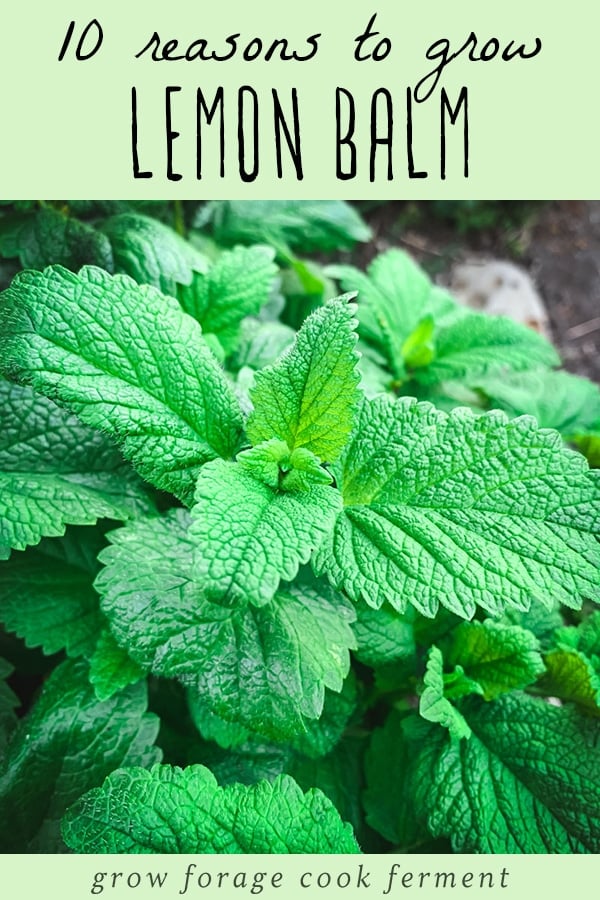
Want to save this post for later?
Wildcrafting Weeds
If you want to learn more about the edible and medicinal weeds that surround us and how to use them, check out my eBook: Wildcrafting Weeds: 20 Easy to Forage Edible and Medicinal Plants (that might be growing in your backyard)!
10 Reasons to Grow Lemon Balm
Lemon Balm is an Excellent Permaculture Plant
This permaculture plant is a welcomed guest to any forest garden! The brassicas in your life will thank you, as lemon balm makes the perfect companion plant.
Keep in mind that like mint, lemon balm grows incredibly fast in rich, well drained, moist soil that receives lots of sun. In the right conditions, it can even become massive. Once you discover all of the useful benefits of having this plant around, I’m sure you’ll be more than fine with that!
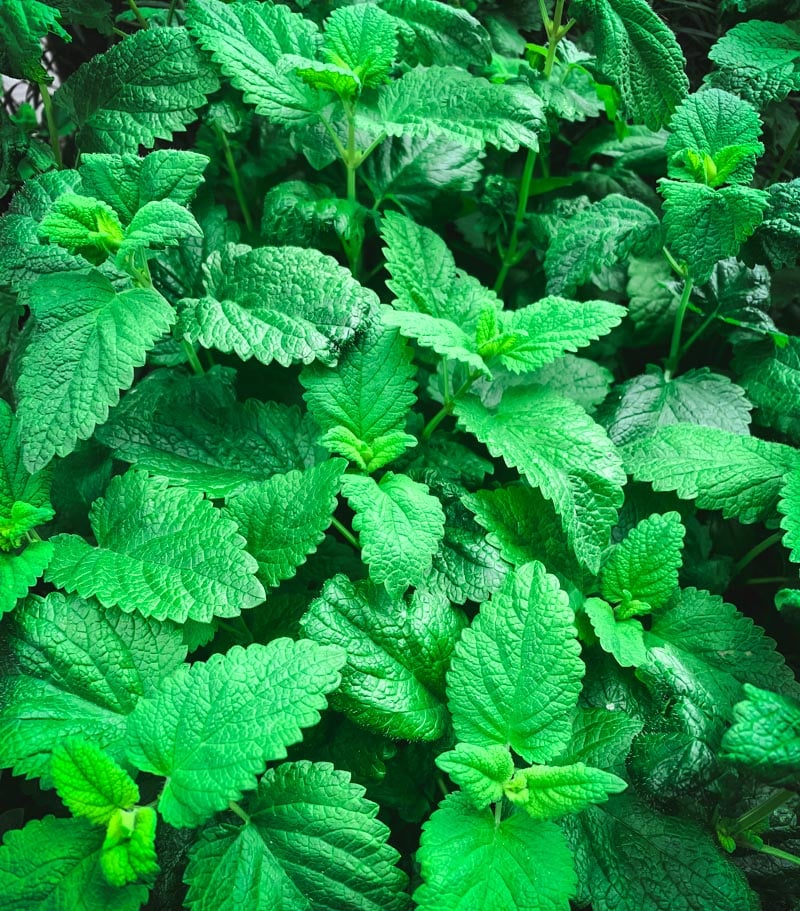
Lemon Balm is Loved by Bees
Bees are enamored with the irresistible nectar that’s filled in lemon balm flowers. Because this herb contains some of the same chemicals that are in bee pheromones, modern beekeepers use an ancient technique of crushing the leaves to draw worker bees to their newly built hives.
In fact, the genus name, Melissa, is derived from the Greek and means honey bee! In mythology, Melissa was a nymph that was said to have discovered and taught about the many uses of honey and eventually honey bees acquired her name. Pretty cool!
Here are more flowers that bees love!
Lemon Balm Repels Annoying Bugs
This herb has the ability to repel ants, mosquitoes, and flies with its high amount of compounds that resemble the scent of citronella.
Try making my easy herbal no bug balm to keep those pesky mosquitoes at range. Out on a hike and forgot to bring your bug balm? Find some lemon balm, crush the leaves, and rub them directly onto your skin!
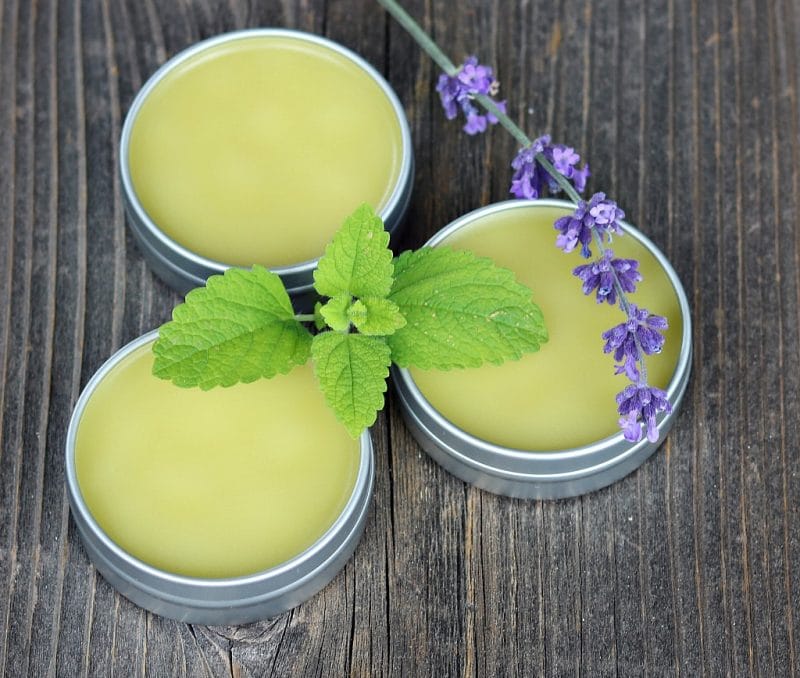
Lemon Balm has Medicinal Benefits
Not only is this plant great in the garden, but it’s also an excellent gem to keep in your herbal remedy cabinet.
Ancient Greeks used lemon balm steeped in wine to relieve the symptoms of fevers. Put together your own ginger and lemon balm cold/flu syrup to relieve those same symptoms today.
This super healing lip balm uses the antiviral effects of lemon balm to quickly clear up cold sores. You can also use it in an herbal salve to speed healing of minor wounds.
Lemon balm may also reduce menstrual cramps and premenstrual syndrome when taken daily for a prolonged period of time.
As aromatherapy, this medicinal plant is inhaled to improve the quality of life of patients with Alzheimer’s disease by improving their memory, mood, and agitation.

Lemon Balm is a Calming Plant
Lemon balm leaves are sedative and taking a tincture or capsule of this highly medicinal plant can improve mood by alleviating stress, anxiety, and tension headaches. It is believed that rosmarinic acid found in lemon balm is responsible for activating the GABA receptors in the brain that promote relaxation.
Lemon balm can also boost brain power to help you stay focused. Even taking a sniff of these aromatic leaves can reduce agitation and promote relaxation.
This herbal powerhouse can also aid in easing the sleep disorder insomnia by reducing restlessness, and supporting a good night’s sleep.
Brew yourself a tea of lemon balm leaves and chamomile or valerian root for a relaxing and restful sleep.
Lemon Balm is a Digestive Aid
Lemon balm is calming to the digestive system. A tea made with lemon balm can help soothe upset stomachs, relieve gas, and even bloating.
Chop up a tablespoon of fresh or dried leaves, infuse them in 8 ounces of boiling water for a few minutes, and enjoy a cup after a meal. This is by far my favorite way to use it!
Lemon Balm is a Children’s Herb
Lemon balm is an excellent herb for children, one of the best! It is totally safe and highly regarded for children, and is often used to calm a sleepless or hyperactive child. We parents could all use a bit of that action!
I have a recipe in my book Healing Herbal Infusions for a Children’s Calming Tea that contains lemon balm.
Small amounts of lemon balm tea can also be given to teething or colicky babies to help reduce discomfort.
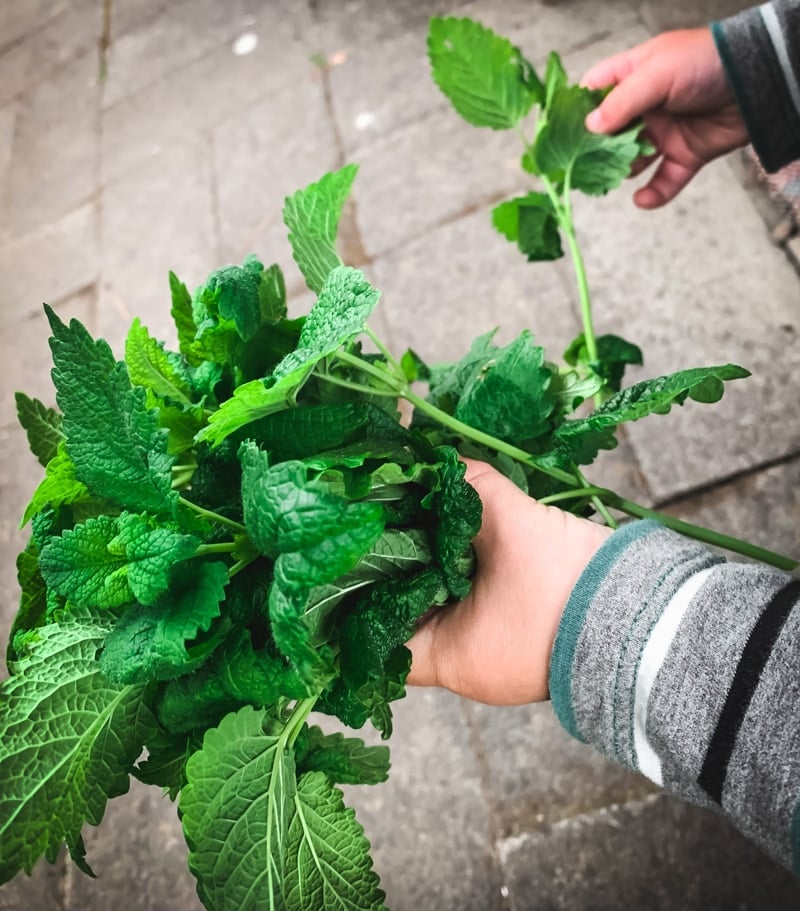
Lemon Balm is Good in Bath & Body Products
The leaves of this beneficial herb are loaded with potent antioxidants that you can take advantage of in this lemon balm soap.
Fill a jar ¾ of the way full with lemon balm leaves and cover them with apple cider vinegar. After infusing for a few days, you’re left with the perfect hair rinse!
Or perhaps a soothing bath soak will be more your speed (just use lemon balm instead of mint).
Lemon Balm Makes Delicious Food
If tea is not your thing, you can still reap the benefits of lemon balm!
Start by adding chopped leaves to salads, baked goods, sorbets or smoothies. Try making this gorgeous lemon balm bundt cake or shortbread cookies!
You can pretty much use it in place of lemon peel in any dish that needs a touch of lemon flavor, like in jams for brightness or try it in a compound butter.
On a hot day this summer, try making lemon balm meringue ice cream or herbal popsicles with fresh lemon balm and lavender!
But the most important question of them all is, will it pesto? Yes, it will!
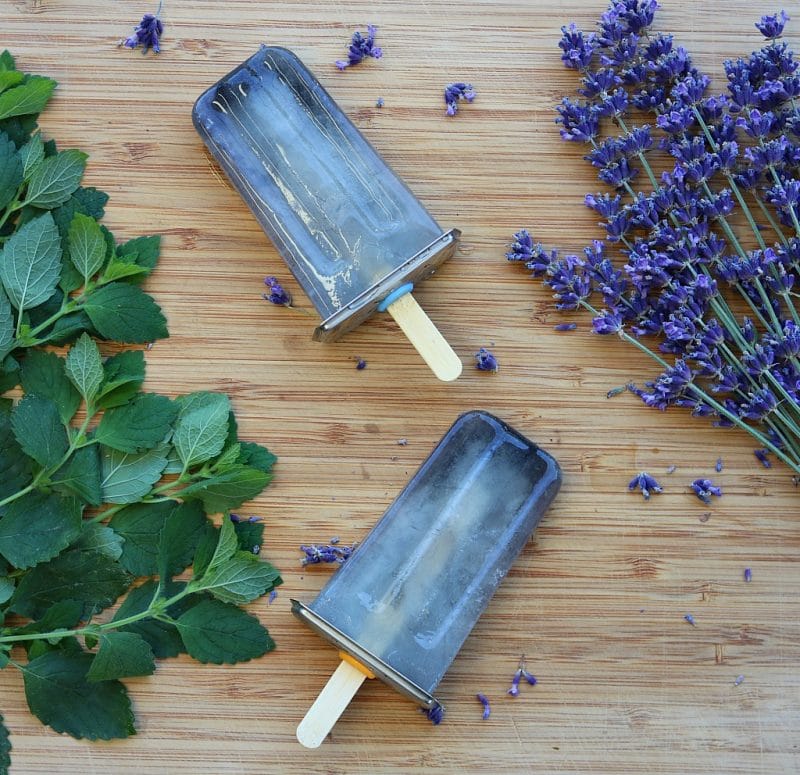
Lemon Balm Tastes Great in Drinks
Carmelite nuns developed an aromatic cordial in the 14th century made from infusing lemon balm leaves, lemon peel, nutmeg, and angelica root in alcohol. This concoction was very popular with reducing headaches and was also used as a perfume.
Chartreuse and Benedictine liqueurs are still around today and are said to have healing properties. Can you guess what one of the main ingredients is?
Another way to use lemon balm leaves is to infuse them in honey and add a dollop to your healing teas as a nice way to unwind at the end of the day.
If it’s a warm day, mix up some iced tea with lemon balm leaves or sip on this refreshing beekeeper’s balm cocktail!
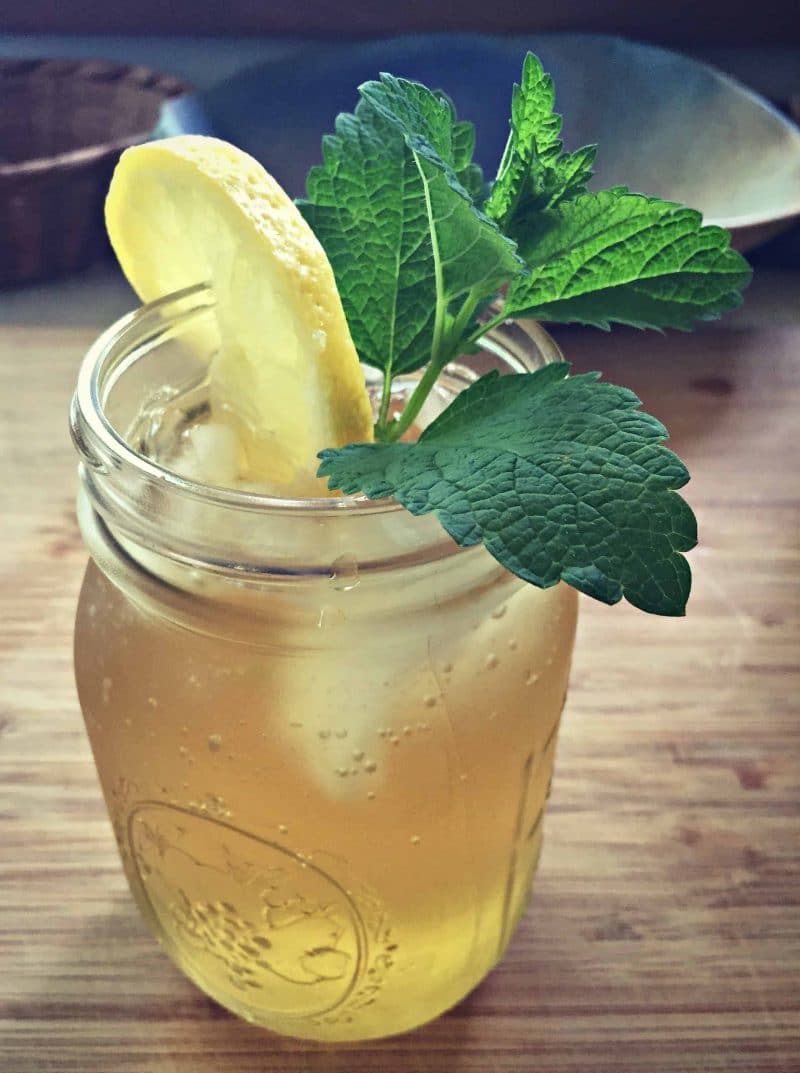
Hopefully these 10 reasons will inspire you to start growing lemon balm! If growing your own isn’t possible at this time, you can order dried lemon balm from my favorite herb shop, Mountain Rose Herbs.
Want more lemon balm recipes? Here are over 30 Lemon Balm recipes for food and medicine.
Why do you love growing lemon balm?
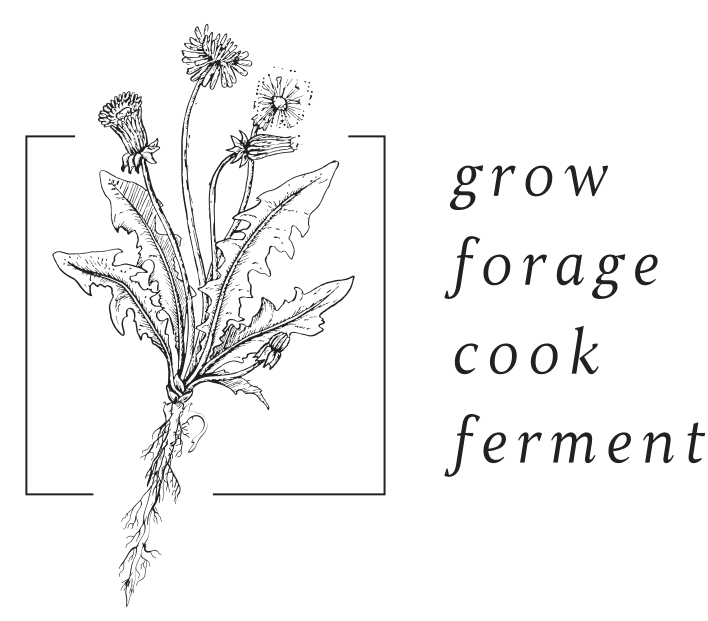
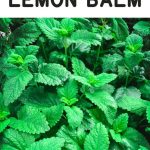
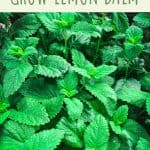


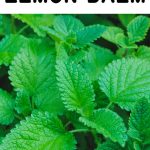



Nice article , keep it up, keep share such article.Thanks
I live in Jackson Mississippi. In my garden its almost a weed; it pops up in beautiful clumps all over the place . I think the birds must plant it.
Your posts are so so informative. I love them. Thank you for sharing all of your knowledge.❤️
You’re welcome!
I am so glad I landed on your site while identifying my lemon balm. Mine was a mix of 100 varieties. Only the poppies and lemon come back. I was mowing it down after poppy blooms were done. This year I will wait to see flowers. But also watch for seeds, I like the small 12inch clump I have.
It is supposed to be excellent to soothe a dogs digestive tract as well. I was concerned when I noticed my puppy would nibble on my plant in the backyard, but relieved to find out when I researched it online and it said it would not hurt her. It said it could soothe her digestive system and that animals quite likely will eat it when they have a tummyache. Now I’ll leave it or she can easily reach it and noticed that she quite often goes over to it and there was a little pieces off on her own.
I am so impressed with your wealth of knowledge! And so grateful to have found your site.
Thank you, Ramona. I’m so glad you’re here!
Note: Lemon Balm can be invasive. I garden in zone 6 where Lemon Balm is a perennial and it spreads rapidly.
Hi Colleen. Thanks for the info on mellissa. I am a 70 y.o. male,and have been using a combo of equall parts : Mellissa,Chamomile and Meadowsweet for upset stomach,and it works like magic. One teaspoon of each Herb in a tissane cup or a saucer placed on top of your cup.Let it steep for 10minutes,then drink. If you get stomach cramps as I do ,it is best to lie down on your stomach until the pain subsides. If it doesn’t ,a second cup will do the trick. Meadowsweet used to be called Spirea but is now called Fillipendula. It is a small shrub that belongs to the rose family. Cheers and good health,Paul.
That is wonderful to hear, Paul. Thank you for your wisdom!
Hi!
I have quite a bit of lemon balm, but it always gets these curly or stunted leaves and a black blight or something. Do you know what this is and how to get rid of it?
I love reading your posts and recipes!
Hi Colleen!
First, I wanted to say that I enjoy your blog immensely, there’s always tons of useful info and creative ideas! Thank you for sharing all your knowledge and experience with us!
I wanted to share my take on lemon balm here. I’ve been growing it for years along with many mint kinds. I love it. No morning is started without mint and Melissa tea, as a matter of fact, in sipping it as I write this.
As of right now I have probably close to a hundred plants of it, and I just finished dividing and transplanting some yesterday. My daughter’s play area is where I grow most of my herbs, so it always looks and smells nice.
So, my observation: bees don’t seem to like lemon balm as much as advertised. And I should know, I kept bees for years. Indeed, I used lemon balm essential oil to attract a swarm to the new hive, works great! But flowers? Not so much, compared with regular mints or cat mint.
Mosquitoes: doesn’t seem to help either, like I said, my daughters play area is in the middle of hundreds of mint and Melissa plants and our mosquitoes don’t seem to care!
And third: I think you forgot to mention one of the main properties of this herb: that It regulates hormonal function, in men and women, therefore making it an essential plant for many!
Thank you again and happy growing🌷❤️❤️
One herb I’ve seen where the flowers really attract bees is oregano… Being somewhat a lazy Gardener who needs nowhere near as much oregano as I can grow I let it go to flower usually early in the summer. It is swarming and beautiful all season long, and the few plants that self seed are not hard to pull out the next year. But yeah I agree, for me in the Pacific Northwest lemon balm flower in the same garden as oregano flower and borage gets little attention. Maybe if it was the only flower around or it is specific to the author’s region where she had a different experience.
Where do I find lemon balm
At garden centers or your local green house. It’ll be with the potted herbs like oregano, basil, catnip, etc.
How do you store harvested lemon balm?
I have some growing in a pot, full sun, keep dirt moist, but it’s pale green and looking weak. Any suggestions?
Fertilize
Great information I’m going to get some today.
My 94 year old mother is suffering with a mild case of Alzheimers. So I’m curious about your comment that in can improve memory and well being. If I put a few small plants in her room where she lives would that help?
thank you,
Kelly
Sounds like you need to diffuse it for the benefits just putting a plant in the room may not help.
Yes, lemon balm may help your mother. I’ll try to paste a link; but if it doesn’t work, go to NutritionFacts.org and under “browse topics”, click on Alzheimer’s. This is a not-for-profit website. No sponsors, no ads, just good science.
This is great information, so glad your blog popped up on my Pinterest feed.
I have been looking for plants that naturally deter mosquitoes for my outdoor patio.
When is the best time to plant lemon balm? I have read conflicting articles about planting either in early spring or that it can be planted at any time during the summer. Just wondering if I’ve missed the planting timeline now that it’s towards the end of May? I’d like to plant lemon balm so it also produces flowers for the bees.
Lemon balm, like mint is hardy and will pretty much tolerate being planted any time… get starters from your local garden center
Hi Kelli, it probably depends on where you live and what the climate is like. Lemon balm is pretty hardy though, so I would just give it a try at any time during the year (except in the middle of winter).